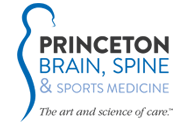Craniotomy
Craniotomy
Procedure & Recovery Overview
A craniotomy is the removal of a portion of the skull to access the brain. This neurosurgical procedure treats several conditions, including acquired brain bleeding (epidural/subdural hematoma), tumors and some brain lesions. The goal of surgery is to safely remove abnormalities or masses that put severe pressure on the brain.
What Happens During a Craniotomy?
For planned surgery, it may be possible to use navigation to assist with the procedure. Emergencies may proceed without this step. Princeton Brain, Spine & Sports Medicine prepares you for navigated cranial surgery by placing markers designed for our precision stereotactic navigation system. To assure accuracy, we may remove a small portion of your hair to make exact markings on the skull. Then, we obtain special CT or MRI imaging to provide a personalized, GPS-like map of your skull and brain.
After removing the appropriate portion of the skull, your PBSSM neurosurgeon uses an operating microscope and microsurgical techniques to safely and effectively remove the identified tumor or hematoma. The skull bone may be replaced immediately or after a few days to allow brain swelling to resolve. It is reattached using MRI-safe titanium plates and screws, and all tissue layers are sewn or stapled closed.
Preparing for a Craniotomy
- One week before surgery, take no NSAIDs (non-steroid anti-inflammatory medications). These include Aleve, Advil, ibuprofen or Naprosyn and especially aspirin. If you are unsure whether other medicines should be taken during the week before surgery, contact the PBSSM medical staff at 609.921.9001 in New Jersey or 215.741.3141 in Pennsylvania.
- Do not eat or drink after midnight prior to surgery. The only exception is to take normal medications with a sip of water. If you are diabetic and require insulin, please consult your Princeton Brain, Spine & Sports Medicine neurosurgical provider about taking insulin before surgery.
- Prepare to arrive an hour before your scheduled surgery. If you arrive late, surgery may be canceled and rescheduled. Please bring your preoperative folder and relevant imaging (MRI, CT, x-ray). Note: For a craniotomy, you may need a stereotactic brain image the day before or morning of your surgery.
- Tobacco use is detrimental to recovery and healing time. If you are a tobacco user, you must abstain two weeks before and after surgery. Lengthening tobacco abstinence or quitting altogether aids in surgical recovery and improves overall health and well-being.
FAQs About Craniotomies
Other Craniotomy Recommendations
Pain medicine can cause constipation. Use stool softeners as needed and eat a high-fiber diet. Avoid straining on the toilet and aim to keep stool malleable.
Since surgery results vary from individual to individual, you may not be able to go home for several days to a week or more after surgery. Depending on the cause of the procedure and presence of brain injury/swelling, several weeks may be required before returning to work. If you are employed at an occupation requiring excessive physical labor or exertion, you may need to take off several months or more. Discuss your work plan with your neurosurgical provider.
Learn More or Schedule an Appointment
To learn more about the craniotomy procedure and how it is performed, use these resources:
For questions about your craniotomy or to request information about PBSSM’s advanced spinal, cranial and neurosurgical care, call 215.741.3141 in Pennsylvania, 609.921.9001 in New Jersey, or contact PBSSM online.
Request an Appointment
Submit an appointment request on our patient portal or contact our New Jersey and Pennsylvania campuses to speak with a patient advocate.
